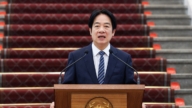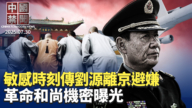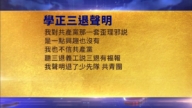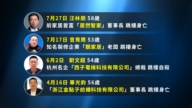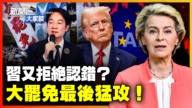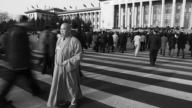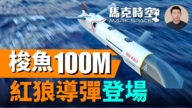【新唐人2014年08月27日讯】中共总书记习近平近日表示,要对国企高薪动刀,最近更传出要砍掉央企高管薪酬的70%。对此学者指出,习近平想通过对央企动刀赢取民心,但可能因为损害太子党的切身利益,因而受到阻力。这一步能否成功,还有待观察。
8月18号,以习近平为组长的“中央深改小组”,审议了国企主要负责人薪酬改革方案,要对负责人履职待遇、业务支出做出新规定。
25号的《财经》杂志援引知情人的说法表示,根据方案,央企负责人的薪酬率先将大幅削减七成,削减后年薪不能超过60万元。
其实,目前国企负责人的薪酬是非常高的。
例如,目前五大国有银行,主要负责人的薪酬都超过100万元。“工商银行”董事长姜建清,去年的年薪是199.56万元;而“中石化”董事长傅成玉,在任职“中海油”董事长时,年收入更是高达1330万元。
资料还显示,石油、电力、电信等7个垄断性国有行业,尽管职工人数占全国不足8%,工资却占全国工资总额的55%,是市场的平均工资的5到10倍。
除此之外,从2001到2008年,国有及国有控股企业,累计获得国家财政补贴共64766.91亿元。
国企受到的这些优待,在中国社会引发了极大的不满。
哈佛大学政经博士杨建利表示,国企的存在本身就是不合理的。如果国企赔钱,要靠纳税人的钱养它们,但它们盈利纳税人却一分钱红利也分不到。
哈佛大学政经博士杨建利:“当公司赚钱的时候是自己的,赔钱的时候就不是自己的。而且国企是政府腐败的重要一个环节,所以习近平在反腐的时候,拿国企开刀也是很自然的。”
另外,杨建利认为,从经济学角度来讲,应该靠市场来决定一个人的工资,而不应该是政府指定的。
北京独立学者、历史学家章立凡对香港《苹果》日报指出,中共的财富王国分为两类,一类是由“官二代”掌握的新兴产业;另一类是“红二代”掌管的央企。
章立凡认为,习近平想过对央企动刀赢取民心,这势必引起“红二代”“太子党”们反弹,他的做法能不能成功,现在下结论还为时过早。
早在2012年12月,美国媒体《彭博社》发表长篇报导披露,他们通过对中共103名“太子党”的调查指出,至少有26名“红二代”掌控中国顶尖的国有企业。其中王震儿子王军、邓小平女婿贺平、陈云的儿子陈元,光这3位“太子党”,在2011年就掌握高达16000亿美元的资产。
杨建利认为,如果经济出现很大变动,政权也不稳定。
杨建利:“他们把持国家的工业命脉,如果他们抵制下去的话,整个国民经济会受到很大的影响。如果经济出现很大变动的话,政权也不稳定。”
实际上,国企高管的腐败非常严重。从今年1月1号到6月23号,据媒体公开报导的不完全统计显示,共有多达44名国企高管因贪腐落马,涉案金额都很巨大。
采访/田净 编辑/宋风 后制/郭敬
Xi Jinping Cuts Executive Income, Will Princelings Resist?
Chinese leader Xi Jinping said in a recent meeting that
executives at state firms will face big pay cuts.
Rumors say that the cuts could be of up to 70%.
Scholars say that Xi intends to win citizens’ support
in this way, but, because it may damage princelings’
vital interests, he will likely face some obstacles.
Whether or not this move will be successful,
only time can tell.
On Aug. 18, central reform team led by Xi Jinping reviewed
the pay cut reform plan for top executives of state businesses.
The new plan aims at top executives’ welfare benefits
and company expenses.
Caijing magazine cited insiders that the plan says
top executives face pay cuts of up to 70%,
their annual income will not be in
excess of 600,000 yuan ($97,500) after that.
Actually, state-own company executives’ income is currently
very high.
For example, annual income of each top executive
at the five state-owned banks is over 1 million yuan.
Jiang Jianqing, Chairman of Industrial and Commercial Bank
of China, his income was about 2 million yuan last year.
Fu Chengyu, current Chairman of Sinopec, in his tenure at
China National Offshore Oil Corporation,
his annual income was 13.3 million yuan.
Former Premier Li Peng’s daughter, Li Xiaolin,
CEO of China Power International Development,
her salary has reached 3.12 million yuan in the past.
Sources show that seven monopolistic state enterprises
such as oil, electricity, telecommunications sectors,
although their employees make up less than 8% of national
employees, their total wages take up 55% of the national,
five to 10 times higher than the average in the market.
In addition, from 2001 to 2008, state-owned enterprises and
holding companies had 6.48 trillion yuan from fiscal subsidies.
It has caused great social discontent in China.
Yang Jianli, Ph.D of Harvard University, says that
state-owned enterprise is unreasonable.
If the company loses money, they rely on taxpayers’ money.
When they make a profit, taxpayers don’t get a penny.
Yang Jianli: “When a company makes money,
they keep it for themselves,
if they lose money, they won’t take the burden themselves.
State-owned firms are the main channels
of governmental corruption.
So it is common that Xi starts from enterprises first
during the anti-corruption fight.”
Yang Jianli also suggests that from the economic point of view,
the market should decide a person’s wages,
not the government.
Zhang Lifan, Beijing independent scholar told Hong Kong’s
Apple Daily that China’s wealth is of two kinds:
One is new sectors controlled
by second generation officials;
Another is Red second generation
that controls state-owned firms.
Zhang Lifan says that Xi wants to win
the support of Chinese people.
This certainly will cause resistance from
princelings and Red second generation.
It is too early to say if Xi can win.
In early Dec. 2012, Bloomberg reported that from
a survey of 103 princelings,
at least 26 control top state-owned businesses.
Amongst them, Wang Zhen’s son Wang Jun,
Deng Xiaoping’s son-in-law He Ping and
Chen Yun’s son Chen Guang controlled
$1.6 trillion of assets in 2011.
Gong Shengli, Chief researcher of Beijing National Conditions
Inside Reference says that these Red second generation
have quite certain power.
Now that Xi Jinping wants to cut their interests,
the resistance will be huge.
Gong Shengli: “Li Peng’s son is a legal representative
of the country’s energy or electricity sectors.
I think Xi’s taking a considerable risk.”
Yang Jianli: “They control the country’s industrial lifeline,
If they resist the national economy
will be greatly affected.
If the changes to the economy are great,
his power will not stable.”
Yang Jianli observes that conflict between Xi and
second generation officials will shake Communist party rule.
Xi likely will make a concession in the end.
Actually, top executives at state-owned firms are very corrupt.
From Jan. 1 to June 23, 44 executives reportedly were
dismissed because of corruption.
It had involved huge amounts of cash.
Interview/TianJin Edit/SongFeng Post-Production/GuoJing




